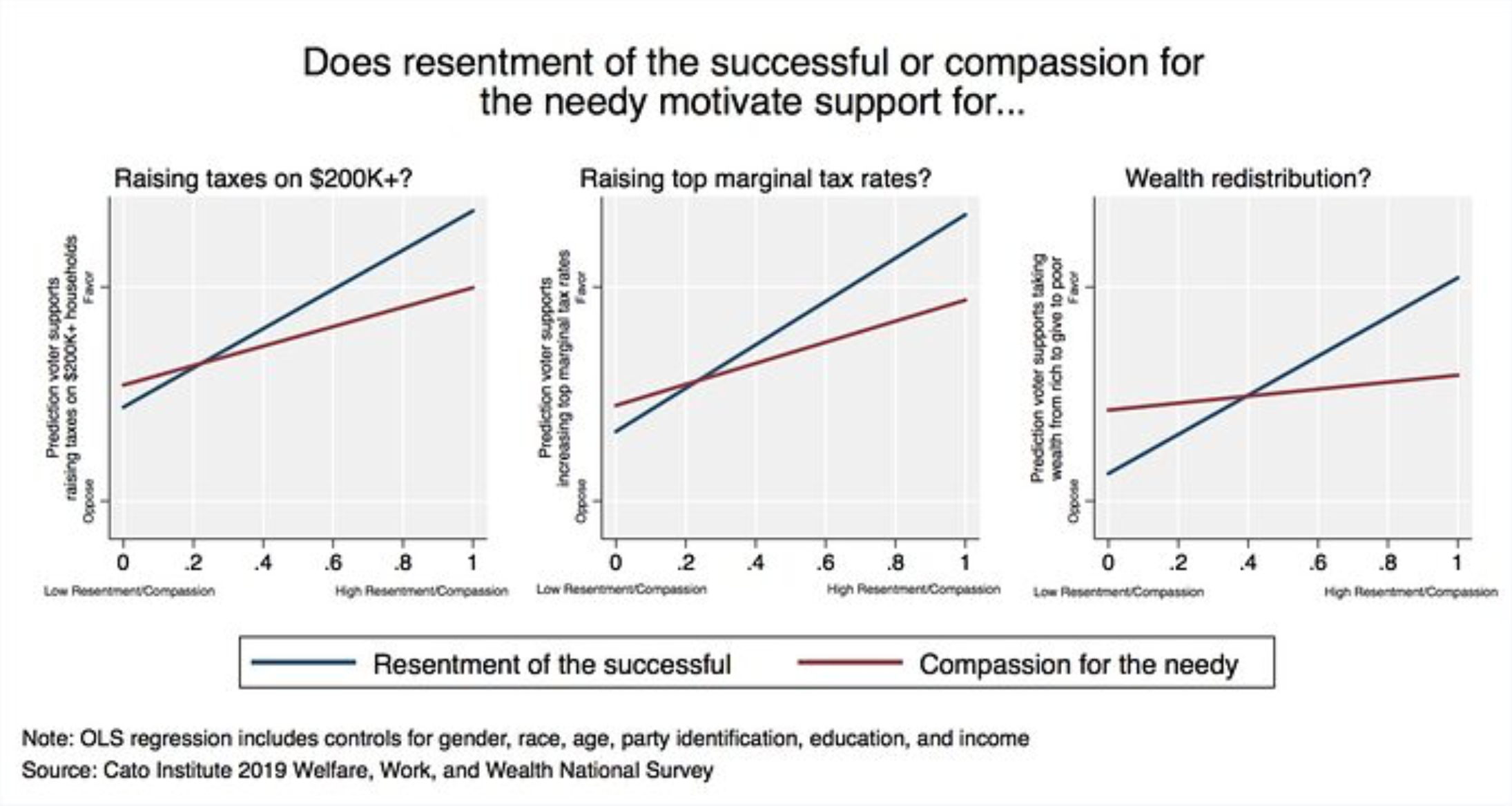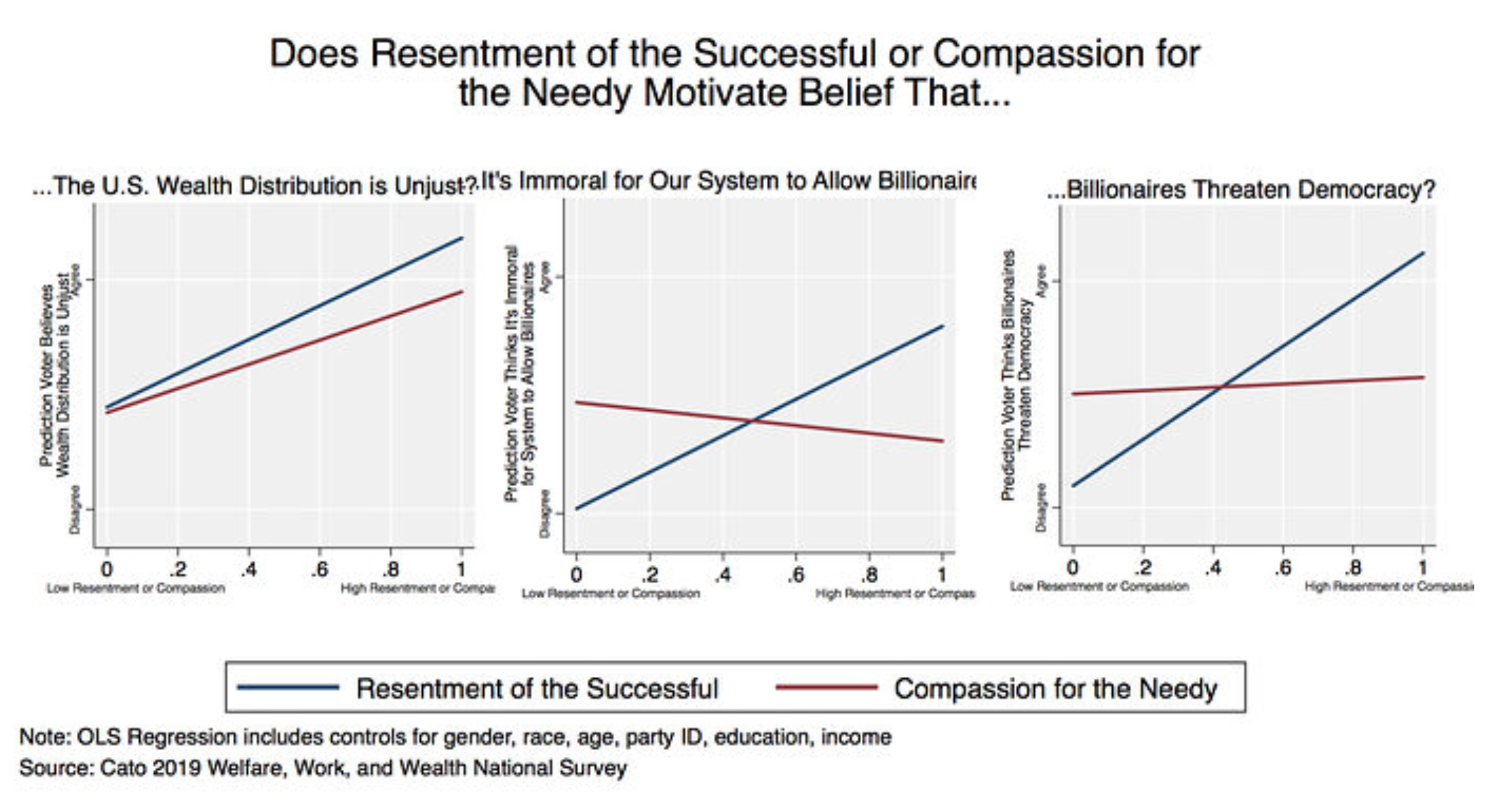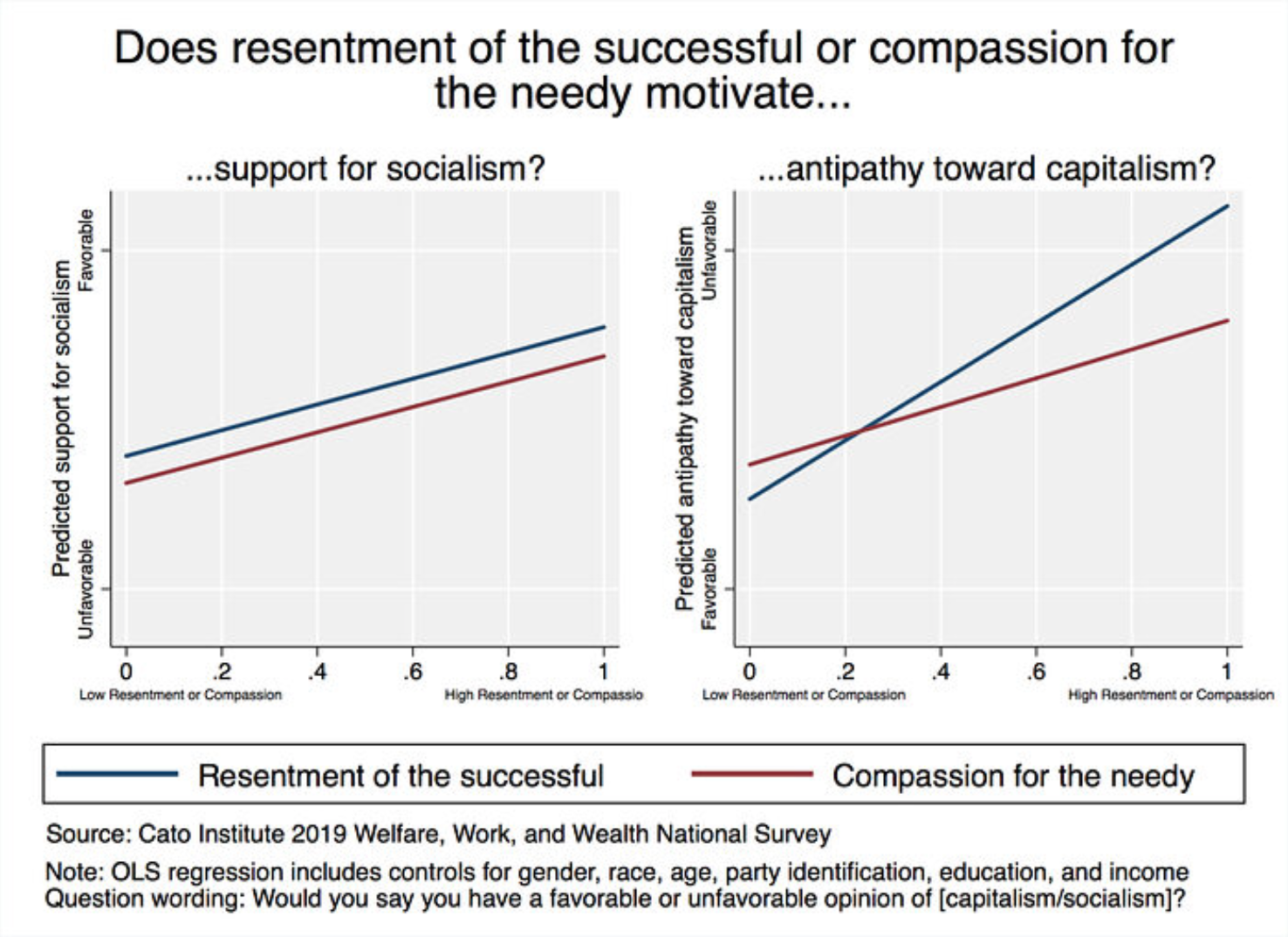
With the 2020 presidential election around the corner, Democratic presidential hopefuls and lawmakers have put forth bold proposals such as returning the top marginal income tax rate to 70 percent, levying wealth taxes as Sens. Bernie Sanders and Elizabeth Warren have proposed, or “taxing the hell out of the wealthy” as New York City Mayor Bill de Blasio put it.
Others such as Rep. Alexandria Ocasio-Cortez claim that capitalism is “irredeemable” and a system that “allows billionaires to exist” is “immoral.” Sanders recently declared he does not think “billionaires should exist.”
Warren went further when she told voters they could attribute frustrations in their lives to the rich and powerful: “You’ve got things that are broken in your life; I’ll tell you exactly why. It’s because giant corporations, billionaires have seized our government.” Watch here:
Many have also noticed the uptick in support for socialism among Democrats as well as the increasing popularity of candidates affiliating with the “democratic socialist” moniker.
What Matters More: Compassion or Envy?
Supporters often contend their motivation is compassion for the dispossessed, and they reason their tax proposals would protect democracy and raise revenue for social programs. With such a rhetorical focus on the rich and powerful, however, critics ask if the motivations are simply about compassion or whether envy and resentment also play a role?
For instance, in a famous exchange, former U.K. Prime Minister Margaret Thatcher responded to a member of Parliament who lamented that income inequality had increased under her watch. Thatcher replied, “All levels of income are better off [in 1990] than they were in 1979 … but what the honorable member is saying is that he’d rather the poor were poorer provided the rich were less rich.”
Thus she implied his true motive was a desire to make the rich worse off rather than the poor better off. Watch here:
What Does the Data Say?
In a new study, I examine these two competing explanations and ask whether envy and resentment of the successful or compassion for the needy better explain support for socialism, raising taxes on the rich, redistribution, and the like. The analysis is based on the “Cato 2019 Welfare, Work, and Wealth National Survey” of 1,700 Americans.
Statistical tests reveal resentment of the successful has about twice the effect of compassion in predicting support for increasing top marginal tax rates, wealth redistribution, hostility to capitalism, and believing billionaires should not exist. Notably, however, compassion and resentment both equally predict support for socialism.
The survey asked respondents to answer a series of survey questions psychologists have developed to measure a person’s level of compassion and envy or resentment of the successful, respectively. These questions don’t mention politics — or even the rich specifically. For instance:
- To measure a person’s level of compassion, the survey asked respondents if they agree or disagree: “I suffer from others’ sorrows,” or “I feel sympathy for those who are worse off than myself.”
- To measure a person’s resentment toward the successful, the survey asked respondents if they agree or disagree: “Very successful people sometimes need to be brought down a peg or two even if they’ve done nothing wrong,” or “It’s good to see very successful people fail occasionally.”
Americans’ answers to these questions were used to measure the extent to which compassion or envy predict their opinions about taxes, socialism, and capitalism.
Raising Taxes on the Rich
Statistical tests (OLS regression) find that resentment against successful people is more influential than compassion in predicting a person’s support for raising taxes on households earning more than $200,000 a year, raising top marginal tax rates to 70 percent, and redistributing wealth from the rich to the poor. (Full statistical results found here.)
This means people who agree that “very successful people sometimes need to be brought down a peg or two even if they’ve done nothing wrong” were more likely to want to raise taxes on the rich than people who agree that “I suffer from others’ sorrows.”
In each of the charts below, the blue line (resentment) is steeper than the red line (compassion), which suggests resentment is a more powerful motivator. Nevertheless, compassion for the needy is also a statistically significant predictor as well.

This data implies that those who support tax increases on the rich and wealth redistribution may be motivated by resentment or compassion, but they are more likely to be motivated by resentment.
Billionaires and Inequality
Next, I ran another series of statistical tests to investigate the motivations behind the following beliefs: 1) It’s immoral for our system to allow the creation of billionaires, 2) billionaires threaten democracy, and 3) the distribution of wealth in the United States is “unjust.”
Again, the statistical tests find that resentment against successful people is more influential than compassion in predicting each of these three beliefs. In fact, not only is resentment more impactful, but compassionate people are significantly less likely to agree that it’s immoral for our system to allow people to become billionaires.
Furthermore, compassion is not significantly linked with the idea that billionaires threaten democracy. Compassion does contribute to concerns about the country’s wealth distribution, but resentment is more influential. This suggests that concerns about inequality may have more to do with antagonism toward the successful than they do with lifting up people in need.

Socialism and Capitalism
Statistical tests find that resentment of the successful is more influential than compassion in predicting hostility toward capitalism. However, both compassion and resentment largely and significantly predict favorable views of socialism. In the charts below, the blue line (resentment) is steeper than the red line (compassion) in predicting hostility toward capitalism, but the blue and red lines look similar in predicting support for socialism.
This implies that it’s hard to know the motives of a person drawn to socialism. It may be compassion, resentment, or perhaps a little of both that motivates them. But a person hostile toward capitalism is much more likely to be motivated by resentment of the successful than compassion for the vulnerable.

Implications for 2020
These competing motives of compassion for the vulnerable and resentment of the successful may play a role in dividing the Democratic primary electorate approaching 2020. Analysis of survey data shows that resentment toward the successful significantly divides voters between the two leading Democratic presidential candidates: Elizabeth Warren and Joe Biden.
Statistical tests find that people who expressed higher levels of resentment toward the successful — for instance, those who agreed that “it’s good to see very successful people fail occasionally,” or “very successful people sometimes need to be brought down a peg or two even if they’ve done nothing wrong” — were much more likely to support Warren. Those who disagreed were more likely to support Biden.
Readers should keep in mind, however, that this survey data was collected in March 2019, before the Democratic debates this summer. Thus, voters may have shifted since then.
Surveys cannot read minds. But this data suggests support for socialism is likely the product of both compassion and resentment. On the other hand, support for wealth redistribution and hostility toward capitalism may have more to do with resentment of the successful than empathy for the poor.
That doesn’t mean compassion doesn’t matter; it may be the true motive for many people. But statistically speaking, resentment is more likely behind such opinions.









